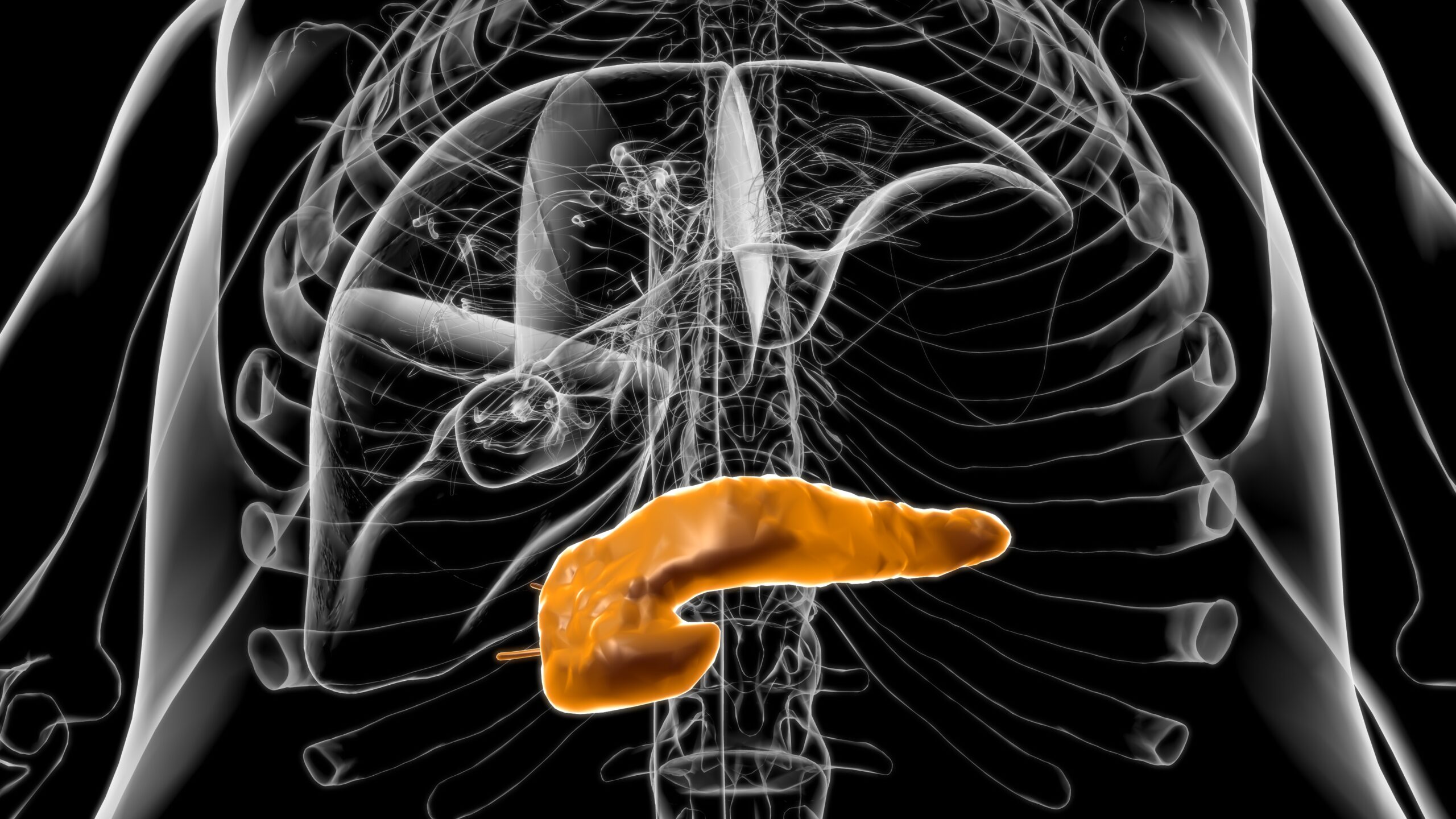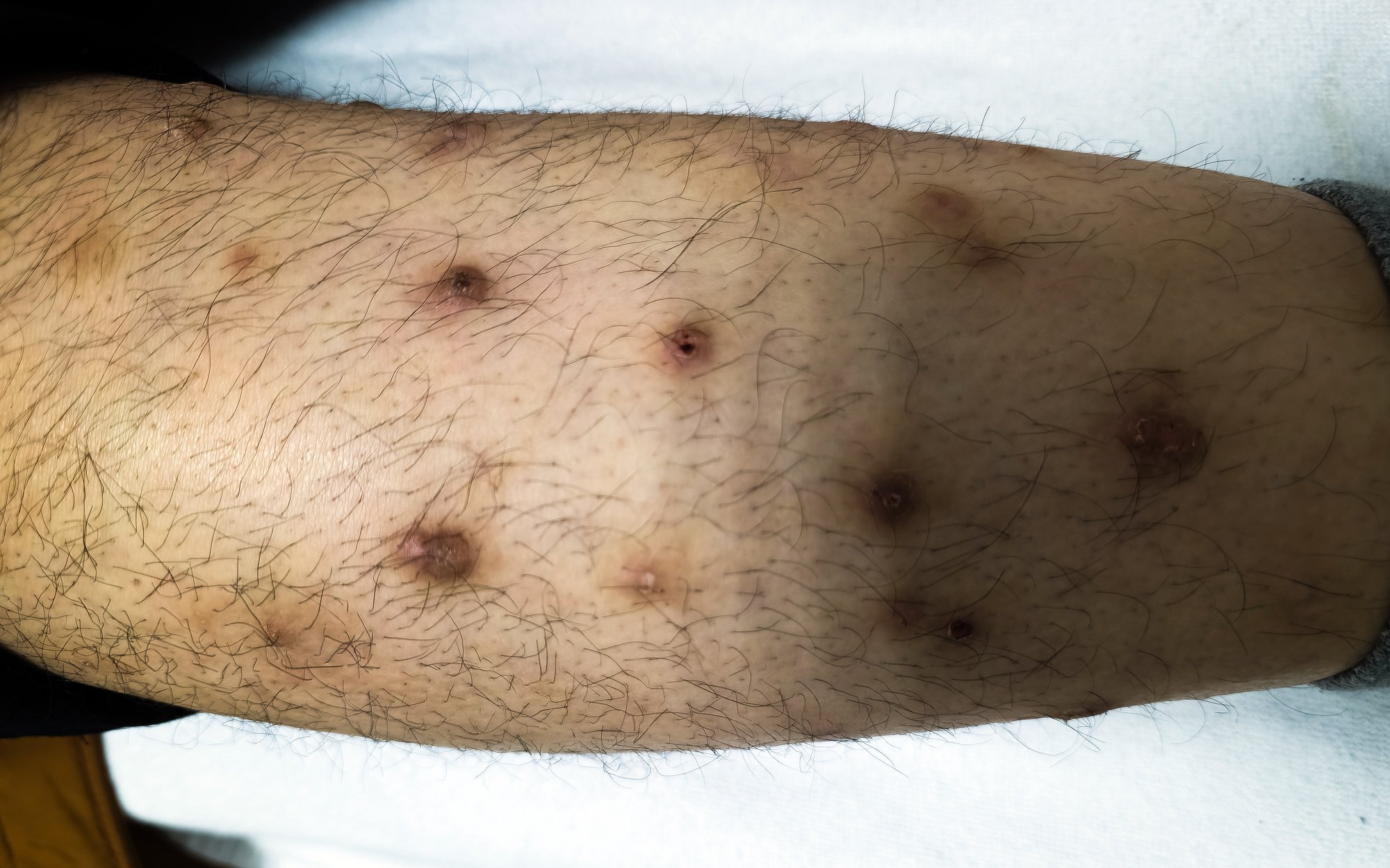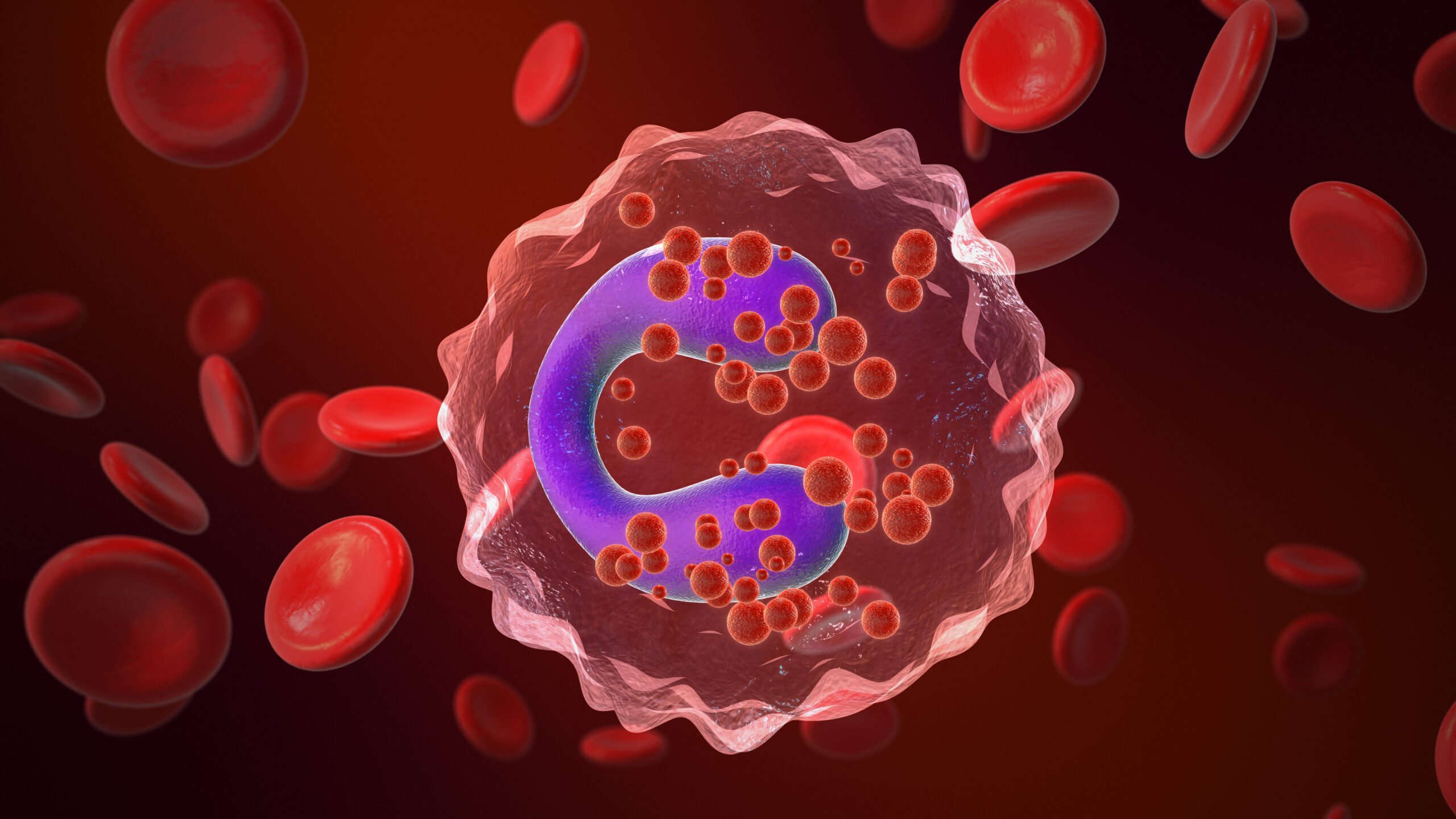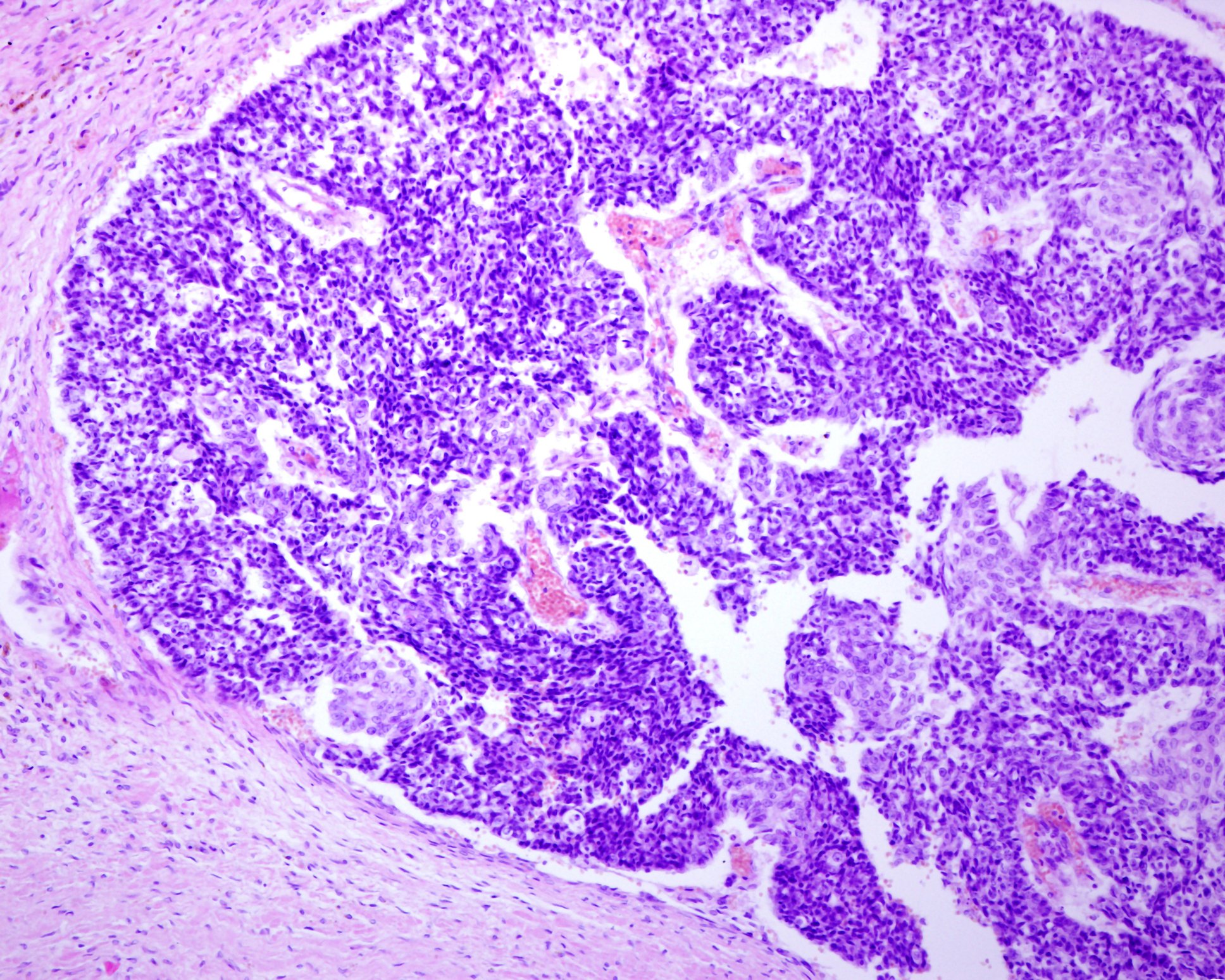The flu is unpredictable and spreads quickly [1]. This makes it all the more important that people at risk in particular protect themselves against infection [2]. A high-dose influenza vaccine is also available in Switzerland for people aged 65 and over. This offers better protection against the flu compared to standard-dose influenza vaccines [3].
(red) Influenza can be associated with a mild/asymptomatic course, but hospitalization or death are also possible outcomes [1]. A severe course of influenza can cause long-term damage and have a lasting impact on quality of life [4]. The 2023/24 influenza season takes place in a special context: The years 2020/21 and 2021/22 were strongly characterized by Covid-19. This was followed by the winter of the “tripledemic”, an influenza season characterized by many Covid-19, RSV and influenza cases [5–7].
Influenza is a potentially serious illness
Around two out of three people at risk have not been vaccinated against influenza. According to the Federal Office of Public Health (FOPH), vaccination is the most effective measure to protect yourself and others from contracting the disease [8]. In recent years, however, only around one in three people at risk received the influenza vaccination [9,10]. The influenza vaccination rate for people aged 65 and over in Switzerland is only just over half as high (2022/23 season: 39%) as the World Health Organization’s (WHO) recommended vaccination rate of 75% and is also below average in a European comparison [9,11,12].
According to the FOPH influenza report, 3565 people were hospitalized with influenza in the 2022/23 season [9]. In view of the shortage of specialist staff and the ageing population, this may represent a burden for the Swiss healthcare system [13,14]. The high number of people infected with influenza costs millions every year [15].
High-dose influenza vaccine Efluelda®
Three influenza vaccines are currently available in Switzerland: two standard-dose vaccines (Fluarix Tetra®, GlaxoSmithKline; VaxigripTetra®, Sanofi) and 1 high-dose vaccine (Efluelda®, Sanofi) [16,30]. Standard-dose vaccines are suitable for widespread use in the population as they are approved from 6 or 36 months of age [16]. Efluelda® was specially developed for people aged 65 and over and is approved for this age group [17,18,30]. Efluelda® is reimbursed for people aged 65 and over with at least one risk factor$ and for everyone aged 75 and over [16].
$ Risk of severe influenza according to the Swiss vaccination schedule: Diseases affecting the heart, lungs, metabolism, liver, kidney, nervous system, spleen, musculoskeletal diseases, cancer, immunodeficiency.
Compared to the standard dose vaccines, Efluelda® contains 4 times the amount of antigen and can therefore induce a stronger immune response for greater protection against influenza [3,16,30]. Randomized trials and clinical practice have shown that high-dose vaccines offer superior protection against infection, hospitalization and death [19,20,30]. Compared to the standard-dose vaccines, Efluelda® achieved a 24.2% reduction in symptomatic, laboratory-confirmed influenza infections [3]**, a 64.4% reduction in hospitalizations due to influenza or pneumonia and a 48.9% reduction in all-cause mortality [19]#. Vaccination with Efluelda® is associated with a good safety and tolerability profile [17].
** Risk of severe influenza according to the Swiss vaccination schedule: Diseases affecting the heart, lungs, metabolism, liver, kidney, nervous system, spleen, musculoskeletal diseases, cancer, immunodeficiency.
# Efluelda® compared with standard-dose influenza vaccine. Data refer to the study period. The primary endpoint of the study was the feasibility of the study design.
The significantly higher efficacy ultimately led to approval and recommendation by the Federal Office of Public Health (FOPH) and the Federal Vaccination Commission (FCVC) in Switzerland [21]. On March 1, 2023, Efluelda® was added to the specialty list and will be reimbursed for people aged 65 and over with at least one risk factorora and for everyone aged 75 and over [22]. Overall, the reimbursement of Efluelda® is estimated to affect 90% of GP patients aged 65 and over [23]&. Despite the higher price, Efluelda® therefore met the criteria of efficacy, appropriateness and cost-effectiveness in accordance with the FOPH’s reimbursement guidelines [24,30].
& Population statistics show that around 90% of GP patients meet the reimbursement criteria for Efluelda® [14,30]:Around 80% of GP patients between 65 and 74 years of age in Switzerland have at least one Efluelda®. a pre-existing condition and all over 75-year-olds meet the reimbursement criteria [22,23,30].
Source: Sanofi
Literature:
- Bresee JS, et al: Inactivated Influenza Vaccines. [Buchverf .] Stanley A Plotkin, et al. Plotkin’s Vaccines. Philadelphia: Elsevier, 2018,7th edition.
- Federal Office of Public Health: Fact sheet for people with a chronic illness and people aged 65 and over [Online], status: 01.09.2023. https://impfengegengrippe.ch/files/media/files/3761efcaaf60589c680cb39408c066db/d_03_Merkblatt2023_BAG_Grippe_Risikogruppen_1.pdf (last accessed 15.12.2023).
- Diaz Granados C, et al: Efficacy of high-dose versus standard-dose influenza vaccine in older adults. NEJM 2014; 371(7): 635-645.
- Andrew MK, et al: Persistent Functional Decline Following Hospitalization with Influenza or Acute Respiratory Illness. J Am Geriatr Soc 2021; Vol. 69(3): 696-703.
- Federal Office of Public Health: Epidemiological course, Switzerland and Liechtenstein – Time course. [Online], www.covid19.admin.ch,(last accessed 6.10.2023).
- Pediatric Infectious Disease Group Switzerland. RSVEpiCH [Online], https://pigs.ch (last accessed 12/15/2023).
- 7 Federal Office of Public Health. Seasonal influenza – Situation report Switzerland. [Online] www.bag.admin.ch/bag, (last accessed 10/6/2023).
- Federal Office of Public Health. Seasonal flu (influenza) [Online], www.bag.admin.ch/bag/de/home/krankheiten/krankheiten-im-ueberblick/grippe.html,(last accessed 15.12.2023).
- Federal Office of Public Health. FOPH Bulletin Week 38/2023. Issue from September 18, 2023.
- Federal Office of Public Health. FOPH Bulletin, Week 39/2022. Issue from September 26, 2022.
- WHO: Prevention and control of influenza pandemics and annual epidemics. Geneva : Fiftysixth World Health Assembly, Geneva, 28 May, 2003, 28.05.2003.
- OECD. Taux de vaccination contre la grippe [Online], https://data.oecd.org/fr/healthcare/taux-devaccination-contre-la-grippe.htm (last accessed 30.09.2023).
- Hehli S: Emergency in nursing care: how homes and hospitals are fighting for rare skilled workers [Online], www.nzz.ch/schweiz/notstand-in-der-pflege-wie-die-heime-und-spitaeler-um-die-rarenfachkraefte-kaempfen-ld.1718978 (last accessed 15.12.2023).
- Federal Statistical Office. Age. [Online] www.bfs.admin.ch/bfs/de/home/statistiken/bevoelkerung/stand-entwicklung/alter.html (last accessed 12/15/2023).
- Pletscher M, et al: The burden of influenza in the Swiss adult population during the 2018/19 season. 26-29.09.2022. Poster at Options XI congress.
- Federal Office of Public Health. Information on flu vaccines [Online]. https://impfengegengrippe.ch/de-ch/impfung/impfstoffe.html (last accessed 30.09.2023).
- Pepin S, et al: Immunogenicity and safety of a quadrivalent high-dose inactivated influenza vaccine compared with a standard-dose quadrivalent influenza vaccine in healthy people aged 60 years or older: a randomized Phase III trial. Hum Vaccin Immunother 2021; 17(12): 5475-5486.
- Swissmedic: Medicinal product information, Efluelda, www.swissmedicinfo.ch. [Online] Status: July 2023.
- Johansen ND, et al: A Pragmatic Randomized Feasibility Trial of Influenza Vaccines. NEJM Evidence 2023; 2(2): 1-11.
- Lee JKH, et al: High-dose influenza vaccine in older adults by age and seasonal characteristics: Systematic review and meta-analysis update. Vaccine X 2023, 14: 10032.
- Federal Office of Public Health. Recommendation for seasonal influenza vaccination – short version. [Online] Status: April 2023. www.bag.admin.ch, (last accessed 10/07/2023).
- Federal Office of Public Health: Specialties list [Online], www.spezialitaetenliste.ch,(last accessed 30.09.2023)
- Gnädinger M, et al: Chronic conditions and multimorbidity in a primary care population: a study in the Swiss Sentinel Surveillance Network (Sentinella). Int J Public Health 2018; vol. 63(9): 1017-1026.
- Federal Office of Public Health: Handbuch betreffend die Spezialitätenliste (SL). [Online] 2017. www.bag.admin.ch/dam/bag/de/dokumente/kuv-leistungen/bezeichnung-derleistungen/antragsprozesse-arzneimittel/handbuch-betreffend-die-spezialitaetenliste-gueltig-ab-01.05.2017.pdf (last accessed 18.10.2023).
- Federal Office of Public Health; The flu vaccination season begins. [Online] www.bag.admin.ch/bag,(last accessed 12.10.2023).
- Federal Office of Public Health. National Flu Vaccination Day – Friday, November 10, 2023. [Online] https://impfengegengrippe.ch/de-ch/impfung/nationaler-grippeimpftag-2023.html (last retrieval 08.10.2023).
- Federal Office of Public Health. Protection against the flu. [Online] https://impfengegengrippe.ch/dech/gemeinsam-gegen-grippe.html (last accessed 24.10.2023).
- Sanofi. Influenza. [Online] https://www.sanofi.com/en/your-health/vaccines/influenza (last accessed 08.10.2023).
- Sanofi. Our Stories. [Online] www.sanofi.us/en/about-us/our-stories/Trying-to-Predictthe-Unpredictable-Preparing-for-this-Flu-Season (last accessed 08.10.2023).
- “Influenza season 2023/24: Current protection options for particularly vulnerable people”, Sanofi, 02.11.2023.
HAUSARZT PRAXIS 2024; 19(1): 38-39 (published on 22.1.24, ahead of print)











